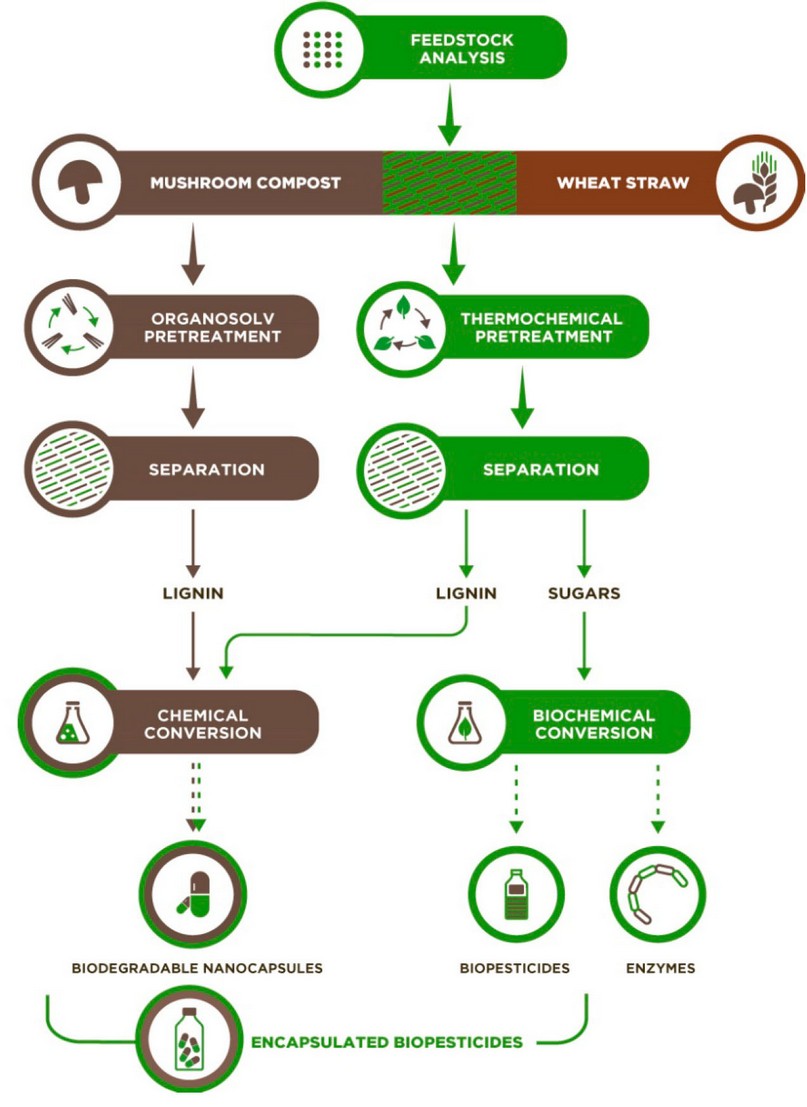2023.08.01.1
Files > Volume 8 > Vol 8 No 1 2023
Biotechnology and biodiversity for the sustainable development of our society

Escuela Superior Politecnica del Litoral, CIBE. Guayaquil, Ecuador.
Corresponding author Email: [email protected]
Available from: http://dx.doi.org/10.21931/RB/2023.08.01.1
Biotechnology has the potential to play a significant role in the sustainable development of our society. This technology involves using living organisms or their products to develop or modify products or processes for specific use. It is a broad term that encompasses a range of technologies, including genetic engineering, tissue culture, and fermentation. While it has many potential benefits, it must be compatible with biodiversity. Biodiversity refers to the variety of life on Earth, including the different plants, animals, and microorganisms that make up our ecosystems. It is essential for the health and functioning of these ecosystems and the sustainable development of our society1, 2 .
Events like the VI Biotechnology and Biodiversity International Congress ("CIBB" for its Spanish name) provide an appropriate space for the industry and biotechnology and biodiversity field scholars to showcase and exchange knowledge. With the participation of top scientists, the VI CIBB 2022 delivered their most recent discoveries and highlighted the close relationship between biotechnology and biodiversity for the sustainable development of our society. During the event's four days, topics relevant to biotechnology development and biodiversity were discussed. Researchers from more than seven countries participated and shared their results in impressive dynamic sessions with more than 200 attendees of the event. These areas were discussed within the themes of scientific advances in banana and cocoa, biotechnology and biodiversity, bioproducts, bioremediation and phytopathology.
Biotechnology can positively impact society by improving the efficiency and sustainability of agricultural practices. For example, genetically modified crops can be developed to be more resistant to pests and diseases, reducing the need for pesticides and herbicides 3 . This can lead to improved crop yields and a reduced environmental impact. In addition, biotechnology can be used to develop more nutritious crops or have longer shelf lives, which can help address food insecurity and waste 4, 5 .
Advancements in biotechnology can also be used to improve environmental conservation efforts. For example, bioremediation involves using microorganisms to clean up contaminated soil and water. This technology can be used to remove pollutants from the environment, making it safer for plants and animals. In addition, biotechnology can be used to develop renewable energy sources, such as biofuels, which can help to reduce our reliance on fossil fuels and combat climate change[6] . The design of high-value-added biobased goods using clean technologies, such as food additives, agricultural bio inputs, crop biofortification, and engineered microorganisms, is currently proving to be fertile ground for collaboration between scientists and the corporate sector (Figure 1).

Figure 1. The BIOrescue project developed and tested a resource-efficient biorefinery concept for mushroom compost and other underutilized agricultural feedstocks, allowing their transformation into valuable bio-based products, such as bio-pesticides, biodegradable nano-carriers for drug encapsulation, as well as new enzymes 7 .
The most excellent strategy for attaining the goals of academics and the industrial sector is teamwork, despite many obstacles to overcome. This will be accomplished only by creating a solid coalition between the society, industrial and academic sectors8 . I urge the replication of events like the VI CIBB and encourage our society to get involved and participate more than ever in choosing the course that research should take in our regions.
Overall, biotechnology plays a significant role in the sustainable development of our society. Through the development of new medical treatments, improved agricultural practices, and environmental conservation efforts, biotechnology can help to improve the lives of individuals and communities around the world. All of these, without ignoring the potential impacts of biotechnology on biodiversity, ensure that it is used in a sustainable and responsible way.
REFERENCES
1. "What is biodiversity? | Pages | WWF." https://www.worldwildlife.org/pages/what-is-biodiversity (accessed Dec. 06, 2022).
2. "Biotechnology: effective solutions for sustainable development | UNESCO." https://www.unesco.org/en/articles/biotechnology-effective-solutions-sustainable-development (accessed Dec. 06, 2022).
3. J. A. Anderson et al., "Genetically engineered crops: Importance of diversified integrated pest management for agricultural sustainability," Front Bioeng Biotechnol, vol. 7, no. FEB, p. 24, Feb. 2019, doi: 10.3389/FBIOE.2019.00024/BIBTEX.
4. S. S. e. A. Zaidi, A. Mahas, H. Vanderschuren, and M. M. Mahfouz, "Engineering crops of the future: CRISPR approaches to develop climate-resilient and disease-resistant plants," Genome Biology 2020 21:1, vol. 21, no. 1, pp. 1–19, Nov. 2020, doi: 10.1186/S13059-020-02204-Y.
5. L. T. Hickey et al., "Breeding crops to feed 10 billion," Nat Biotechnol, vol. 37, no. 7, pp. 744–754, Jul. 2019, doi: 10.1038/s41587-019-0152-9.
6. "Biotechnology for the Environment in the Future : Science, Technology and Policy | OECD Science, Technology and Industry Policy Papers | OECD iLibrary." https://www.oecd-ilibrary.org/science-and-technology/biotechnology-for-the-environment-in-the-future_5k4840hqhp7j-en (accessed Dec. 06, 2022).
7. "Research results - Biorescue Project." https://biorescue.eu/research-results/ (accessed Dec. 06, 2022).
8. L. Lange et al., "Developing a Sustainable and Circular Bio-Based Economy in EU: By Partnering Across Sectors, Upscaling and Using New Knowledge Faster, and For the Benefit of Climate, Environment & Biodiversity, and People & Business," Front Bioeng Biotechnol, vol. 8, p. 1456, Jan. 2021, doi: 10.3389/FBIOE.2020.619066/BIBTEX.
Received: 26 September 2022 / Accepted: 15 October 2022 / Published:15 February 2022
Citation: Bonilla Jaime J A. Biotechnology and biodiversity for the sustainable development of our society. Revis Bionatura 2023;8 (1) 1. http://dx.doi.org/10.21931/RB/2023.08.01.1